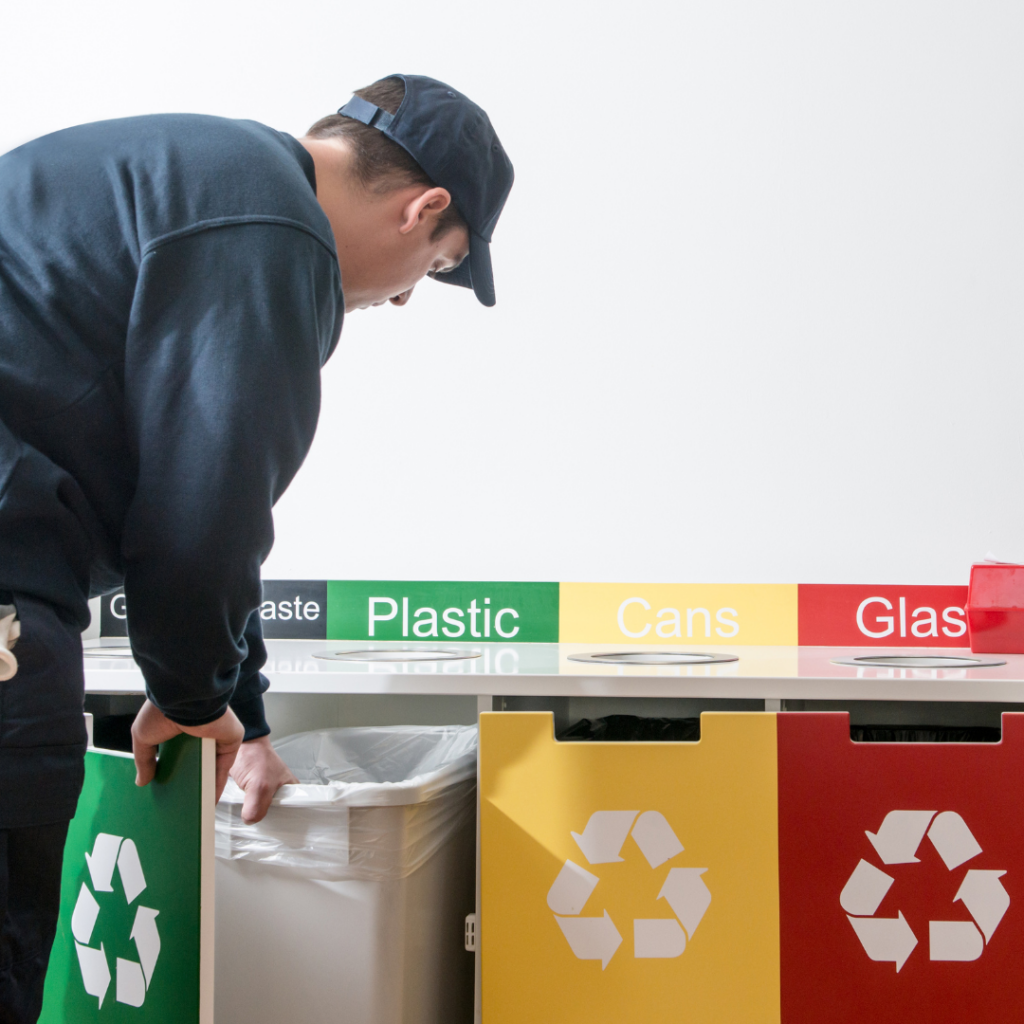Appliance Removal: Proper Disposal and Recycling Tips
In today’s fast-paced consumer culture, the disposal of old appliances poses a significant challenge for households and communities alike. From outdated refrigerators and washing machines to malfunctioning dishwashers and air conditioners, appliances often end up in landfills, contributing to environmental pollution and resource depletion. However, proper disposal and recycling of appliances offer a sustainable solution to this growing problem, enabling households to reduce their environmental footprint and conserve valuable resources. In this article, we explore the importance of appliance removal, along with tips for proper disposal and recycling.
The Importance of Appliance Removal
Appliance removal is essential for several reasons. Firstly, old and obsolete appliances can pose safety hazards, particularly if left unattended or improperly stored. Malfunctioning electrical components, leaking refrigerants, and deteriorating insulation materials may increase the risk of electrical fires, chemical spills, and environmental contamination. By removing old appliances from households, communities can mitigate these risks and ensure the safety of residents and property.
Moreover, appliance removal is crucial for environmental conservation and resource management. Many appliances contain valuable materials, such as metals, plastics, and glass, that can be recycled and reused in the manufacturing of new products. By diverting appliances from landfills and recycling them properly, communities can conserve natural resources, reduce energy consumption, and minimize greenhouse gas emissions associated with the production of new materials.

Proper Disposal and Recycling Tips
Check Local Regulations: Before disposing of appliances, check local regulations and guidelines for proper disposal and recycling procedures. Many municipalities offer appliance recycling programs or collection events where residents can drop off old appliances for recycling free of charge.
Donate or Sell Working Appliances:
If your appliance is still in working condition, consider donating it to a local charity or selling it to a secondhand store. Many organizations accept donations of used appliances and refurbish them for resale, providing affordable options for low-income households.
Expanding on the topic of donating or selling working appliances, it’s important to highlight the multiple benefits and considerations associated with this option. Donating or selling working appliances not only extends the lifespan of the product but also promotes resource conservation and supports communities in need. Here’s a deeper exploration of this environmentally and socially responsible practice:
Extending Product Lifespan
Donating or selling working appliances allows them to continue serving their intended purpose rather than being discarded prematurely. Many appliances have significant remaining useful life even when replaced, and passing them on to others ensures that their value is fully realized. By extending the lifespan of appliances through donation or resale, households contribute to reducing overall consumption and waste generation.
Supporting Community Organizations
Donating working appliances to charitable organizations, thrift stores, or community initiatives provides valuable resources to those in need. Many organizations accept donations of appliances and distribute them to low-income families, individuals transitioning out of homelessness, or community centers serving vulnerable populations. By contributing to these efforts, donors help address housing insecurity, alleviate financial burdens, and improve the quality of life for marginalized communities.
Environmental Benefits
Choosing to donate or sell working appliances reduces the environmental footprint associated with their disposal and replacement. By avoiding the energy and resources required to manufacture new appliances, donors conserve natural resources and reduce greenhouse gas emissions. Additionally, diverting appliances from landfills minimizes the environmental impact of waste disposal and contributes to sustainable waste management practices.
Considerations for Donation or Sale
When donating or selling working appliances, it’s important to consider the following factors:
- Condition and Functionality: Ensure that the appliance is in good working condition and free from significant defects or issues. Test the appliance to verify its functionality and address any minor repairs or maintenance needs before donation or sale.
- Compatibility and Safety: Verify that the appliance meets safety standards and is compatible with local electrical and plumbing systems. Provide relevant documentation, such as user manuals and warranty information, to the recipient for reference.
- Donation Recipients: Research charitable organizations, thrift stores, or community programs that accept appliance donations and align with your values and objectives. Consider organizations that prioritize serving underserved communities or support specific causes that resonate with you.
- Selling Considerations: If opting to sell working appliances, research fair market prices and consider factors such as age, brand, condition, and features when setting prices. Explore online marketplaces, classified ads, or consignment shops as potential selling platforms.
Donating or selling working appliances is a meaningful way to extend their lifespan, support community organizations, and reduce environmental impact. By choosing this environmentally and socially responsible option, households contribute to resource conservation, waste reduction, and community empowerment. Contact us today to learn more about how you can donate or sell working appliances in your area and make a positive difference in your community. Together, let us empower sustainability and create a brighter future for all.
Contact Retailers or Manufacturers:
Some appliance retailers and manufacturers offer appliance recycling programs or take-back initiatives for old appliances. Contact the retailer or manufacturer of your appliance to inquire about recycling options and disposal services available in your area.
Expanding on the topic of contacting retailers or manufacturers for appliance disposal and recycling, it’s essential to delve into the various options and resources available through these channels. Retailers and manufacturers often offer take-back programs, recycling incentives, and disposal services to help consumers responsibly manage their old appliances. Here’s a comprehensive exploration of this convenient and environmentally friendly approach:
Take-Back Programs
Many appliance retailers and manufacturers operate take-back programs designed to facilitate the responsible disposal and recycling of old appliances. These programs allow consumers to return their old appliances to participating retailers or manufacturers, typically at little to no cost. By partnering with recycling facilities and waste management companies, retailers and manufacturers ensure that appliances are properly dismantled, recycled, or disposed of in accordance with environmental regulations.
Recycling Incentives
Some retailers and manufacturers offer recycling incentives to encourage consumers to recycle their old appliances. These incentives may take the form of rebates, discounts, or vouchers redeemable towards the purchase of new appliances. By providing financial incentives for recycling, retailers and manufacturers incentivize consumers to choose environmentally friendly disposal options and promote sustainable consumption practices.
Disposal Services
In addition to take-back programs and recycling incentives, retailers and manufacturers may offer disposal services for old appliances. These services may include pickup and removal of old appliances from consumers’ homes, as well as transportation to recycling facilities or waste management centers. By offering convenient disposal services, retailers and manufacturers streamline the process of replacing old appliances with new ones while ensuring proper disposal and recycling of retired appliances.
Environmental Commitments
Many retailers and manufacturers are committed to environmental sustainability and prioritize responsible disposal and recycling of appliances as part of their corporate social responsibility initiatives. By partnering with reputable recycling partners, implementing eco-friendly packaging and manufacturing practices, and promoting energy-efficient appliances, retailers and manufacturers demonstrate their commitment to reducing environmental impact and promoting sustainability throughout the product lifecycle.
Consumer Education and Support
Retailers and manufacturers play a crucial role in educating consumers about the importance of responsible appliance disposal and recycling. Through informational materials, online resources, and customer support channels, retailers and manufacturers provide guidance on proper disposal methods, recycling options, and available incentives. By empowering consumers with knowledge and resources, retailers and manufacturers encourage environmentally conscious behavior and foster a culture of sustainability.
Contacting retailers or manufacturers for appliance disposal and recycling offers consumers a convenient and environmentally friendly option for managing old appliances. Through take-back programs, recycling incentives, disposal services, environmental commitments, and consumer education efforts, retailers and manufacturers support responsible disposal practices and promote environmental sustainability. Contact us today to learn more about appliance disposal and recycling options available through retailers and manufacturers in your area. Together, let us leverage these resources to create a cleaner, healthier planet for future generations.
Schedule Pickup Services:
Many waste management companies offer pickup services for large appliances, such as refrigerators, stoves, and washing machines. Schedule a pickup service with your local waste management provider or inquire about special collection events for bulky items in your community.
Prepare Appliances for Recycling:
Before recycling appliances, remove any personal belongings, food residues, or hazardous materials from the appliance. Safely disconnect electrical and plumbing connections and secure any loose parts or components to prevent damage during transportation.
Choose Certified Recycling Facilities:
When recycling appliances, choose certified recycling facilities that adhere to environmental and safety standards. Look for facilities that are certified by organizations such as the Responsible Appliance Disposal (RAD) program or the Environmental Protection Agency (EPA).

Conclusion:
Proper disposal and recycling of appliances are essential for promoting sustainable practices and reducing environmental impacts. By removing old appliances from households and recycling them properly, communities can mitigate safety hazards, conserve natural resources, and minimize waste sent to landfills. By following the tips outlined in this article and exploring recycling options available in your area, you can contribute to a cleaner, healthier planet for future generations. Contact us today to learn more about responsible appliance removal and recycling options in your community. Together, let us prioritize responsible appliance disposal and recycling to create a more sustainable future for all.






